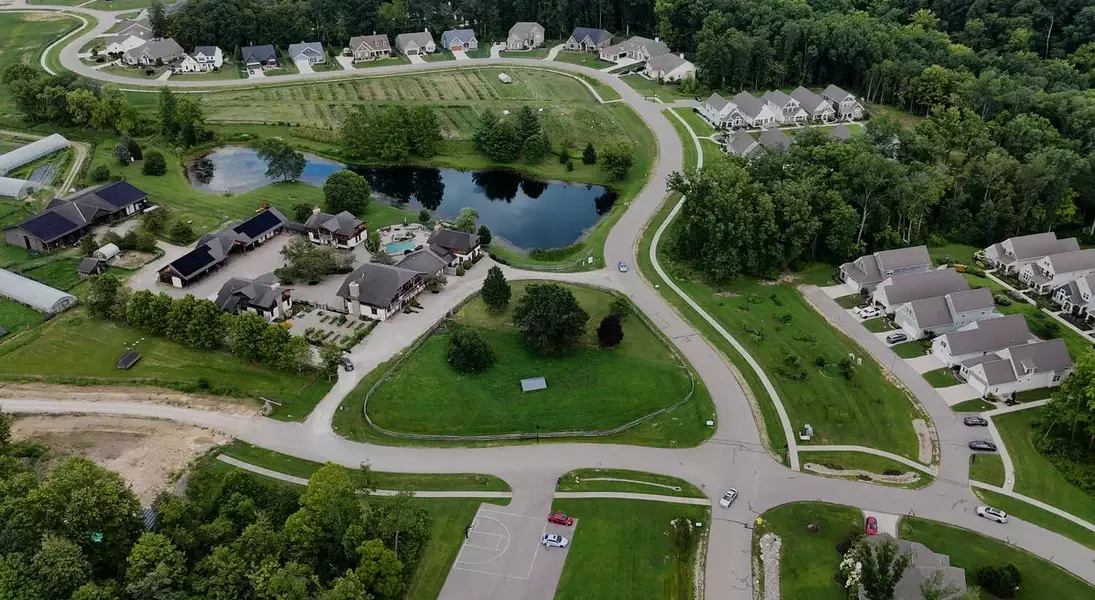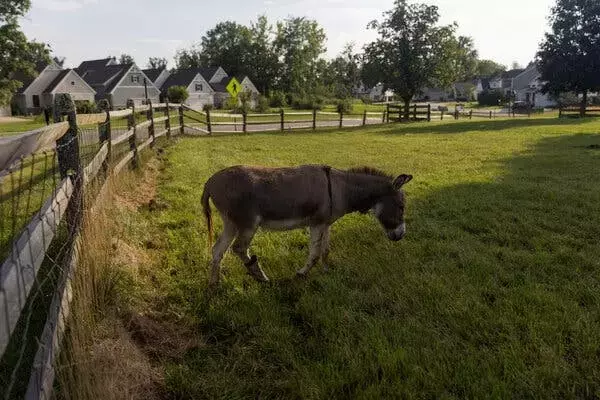





In a world increasingly dominated by digital connections and fast-paced living, a growing number of individuals are seeking refuge in the tranquil embrace of 'agri-communities.' These unique residential developments offer a return to fundamental principles, emphasizing self-sufficiency, organic farming, and strong communal bonds. While presenting a utopian vision of pesticide-free produce and nurturing environments for children, these communities also serve as microcosms where deeply held beliefs, especially regarding health and societal roles, often converge and sometimes clash. The narrative explores the delicate balance between shared ideals and individual convictions, offering a compelling glimpse into a nascent social movement.
Aberlin Springs: A Blueprint for Modern Rural Living
Nestled within the picturesque landscapes of southwest Ohio, a mere commuting distance from downtown Cincinnati, lies Aberlin Springs—a groundbreaking agri-community that has captivated the imagination of many. Since its inception in 2018, this development, boasting nearly 100 residences valued up to $1.5 million, has burgeoned into a sanctuary for those drawn to an agrarian lifestyle. At its heart is a thriving farm, dedicated to providing fresh, wholesome produce directly to its residents. Imagine custom-built homes, adorned with charming painted shutters and inviting rocking chairs, lining streets aptly named "Nectar Court" and "Lavender Way"—each an embodiment of a simpler, more connected existence.
Leah Lauchlan, a vibrant 42-year-old mother of five, exemplifies the spirit of Aberlin Springs. Seven years ago, she and her husband were among the pioneers to settle here, drawn by the promise of a life steeped in nature and community. Leah, often seen leading engaging "Kids Farm Day" sessions for the neighborhood's eager youngsters, passionately advocates for healthy living, emphasizing the critical link between fertile soil, nutritious food, and human well-being. Her journey reflects a profound shift in priorities, embracing a part-time professional role to fully immerse herself in family and home life—a decision she finds profoundly rewarding.
The visionary behind Aberlin Springs, Leslie Aberlin, 60, conceived the community from a profound personal experience. Struggling for years with a debilitating autoimmune illness, she discovered healing through a diet of grass-fed meats and raw produce, fostering a deep skepticism toward conventional agriculture and the widespread use of pesticides. Her conviction led to the community's strict pesticide-free policy, a cornerstone of its philosophy. Aberlin Springs is more than just a collection of homes; it is a meticulously cultivated environment where residents, including Ellie Mae Mitchell, a dedicated farmer, work hand-in-hand to ensure a consistent supply of farm-grown items. Residents contribute $850 annually to a community-supported agriculture program, receiving approximately ten farm-fresh items weekly from spring through autumn, sustained by three full-time farmers and seasonal workers.
However, beneath the pastoral serenity, ideological currents occasionally surface. The community, while banning political lawn signs, encompasses a diverse spectrum of residents, from self-proclaimed "far lefts" to "far rights," united by a shared appreciation for healthy food but sometimes divided on broader societal issues. Rachel Pitman, 36, a devoted mother of five and a staunch advocate for what she terms the "MAHA mom" philosophy, embodies some of these tensions. Having transitioned from a small business owner to a full-time homemaker and homeschooling parent, she openly expresses strong opinions on vaccinations and modern parenting, at times creating friction within the community. These underlying differences highlight the delicate balance required to maintain harmony within a diverse, yet closely knit, population.
The community's founder, Leslie Aberlin, is acutely aware of these dynamics. Despite her personal reservations regarding vaccines, she strives to maintain political neutrality within Aberlin Springs, even requesting speakers at community events to avoid contentious topics like vaccination. This delicate balancing act underscores the aspiration for unity amidst diversity, focusing on shared values like healthy living and community engagement over divisive political discourse. The ultimate goal is to cultivate a space where different viewpoints can coexist, fostering a sense of belonging while allowing residents to engage with broader societal issues on their own terms.
Navigating Diverse Perspectives in the Pursuit of Community
The emergence of agri-communities like Aberlin Springs presents a compelling case study on the complexities of forging cohesive societies in an ideologically fractured world. While the appeal of a simpler, healthier existence resonates across various demographics, the underlying motivations and personal beliefs often bring forth nuanced challenges. The desire for a shared lifestyle, epitomized by gardening together and enjoying farm-fresh meals, sometimes collides with deeply entrenched convictions on issues ranging from public health to traditional gender roles. This dynamic underscores a fundamental question: can a community truly thrive by simply agreeing to disagree, or do deeper ideological divides inevitably shape the social fabric?
From a journalist's vantage point, Aberlin Springs offers a fascinating lens through which to examine contemporary societal trends. It highlights a growing yearning for authenticity and self-sufficiency, a retreat from perceived over-industrialization and digital saturation. Yet, it also reveals the inherent difficulties in creating truly inclusive spaces when fundamental differences in worldview exist. The ongoing dialogue within such communities, whether tacit or overt, reflects broader national conversations about individual liberty, scientific consensus, and the definition of a 'healthy' society. This intricate interplay between shared aspirations and divergent beliefs makes these agri-communities not just places of residence, but living laboratories of social change, offering invaluable insights into the evolving American psyche.
